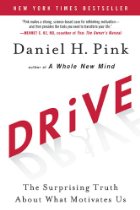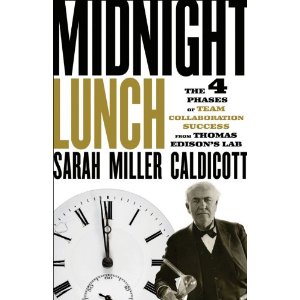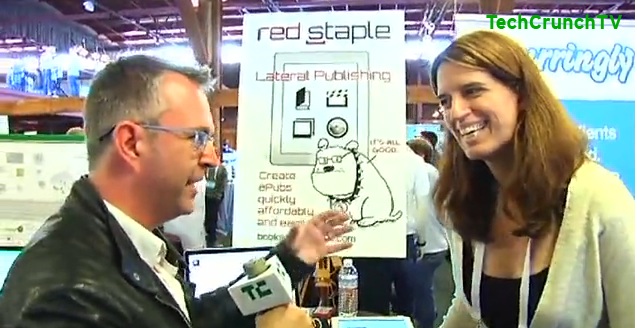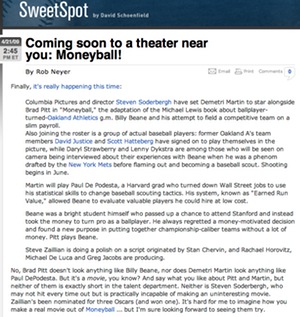Wired Magazine had a story in their June 2010 issue (Cognitive Surplus: The Great Spare-Time Revolution) that delved into the most effective ways to motivate workers in the 21st century.
 They rounded up Daniel Pink, a Wired contributing editor and author of Drive: The Surprising Truth About What Motivates Us and Clay Shirky, who recently published “Cognitive Surplus: Creativity and Generosity in a Connected Age , for a Q&A session.
They rounded up Daniel Pink, a Wired contributing editor and author of Drive: The Surprising Truth About What Motivates Us and Clay Shirky, who recently published “Cognitive Surplus: Creativity and Generosity in a Connected Age , for a Q&A session.
Their works are complementary. Pink’s book digs through more than five decades of behavioral science to challenge the orthodoxy that carrots and sticks are the most effective ways to motivate workers in the 21st century.
Shirky argues that the time Americans once spent watching television has been redirected toward activities that are less about consuming and more about engaging. He also notes that the efforts aren’t fueled by external rewards but by intrinsic motivation-the joy of doing something for its own sake.
Here are some excerpts:
Pink: We have a biological drive. We eat when we’re hungry, drink when we’re thirsty, have sex to satisfy our carnal urges. We also have a second drive-we respond to rewards and punishments in our environment. But what we’ve forgotten-and what the science shows-is that we also have a third drive. We do things because they’re interesting, because they’re engaging, because they’re the right things to do, because they contribute to the world. The problem is that, especially in our organizations, we stop at that second drive. We think the only reason people do productive things is to snag a carrot or avoid a stick. But that’s just not true. Our third drive-our intrinsic motivation-can be even more powerful.
***
Shirky: …When we lacked the ability to efficiently connect and collaborate with each other, that intrinsic motivation often didn’t surface. So we assumed that productive, public activities revolved around extrinsic motivation and external rewards. And we assumed that all rewards were substitutable for all other rewards. So I can pay you more or I can praise you or I can put a Lucite brick on your desk and it all works the same way.
Pink: Which is nonsense. Both of us cite research from University of Rochester psychologist Edward Deci showing that if you give people a contingent reward-as in “if you do this, then you’ll get that”-for something they find interesting, they can become less interested in the task. When Deci took people who enjoyed solving complicated puzzles for fun and began paying them if they did the puzzles, they no longer wanted to play with those puzzles during their free time. And the science is overwhelming that for creative, conceptual tasks, those if-then rewards rarely work and often do harm.
***
Pink: You say something else about organizations that I found especially compelling-about their instinct for self-perpetuation.
Shirky: Well, organizations that are founded to solve problems end up committed to the preservation of the problems. So Trentway-Wagar, an Ontario-based bus company, sues PickupPal, an online ride-sharing service, because T-W isn’t committed to solving transportation problems. It’s committed to solving transportation problems with buses. In the media world, Britannica is now committed to making reference works that can’t easily be referred to, and the music industry is now distributing music that can’t easily be shared because new ways of distributing music undermine the old business model.
Pink: Let’s go back to the cognitive surplus for a moment. What are the stakes for businesses, and what, if anything, can they do about it?
Shirky: Businesses need to recognize that this isn’t going away, that there’s a tremendous resource-the cognitive surplus of millions-being coordinated using networks. One of the things that my book is trying to do, and your book as well, is to show that there are forces at work that we often don’t see and that if organizations can tap into these forces, those organizations can actually benefit.
***
For sure, as Albert Einstein once said, “The significant problems we face cannot be solved at the same level of thinking we were at when we created them.”
Both Pink and Shirky are trying to help us shift our thinking for managing in the 21st Century. Tapping into that third thing could be an all around win-win.
###

















Speak Your Mind